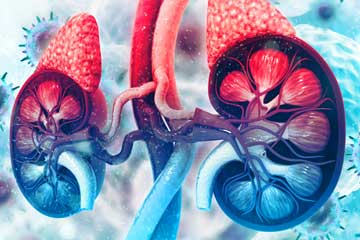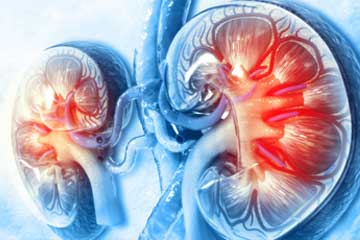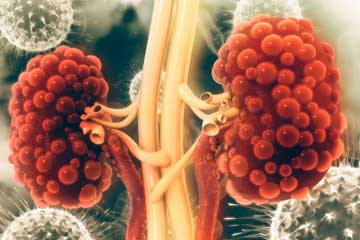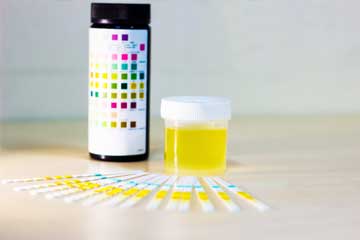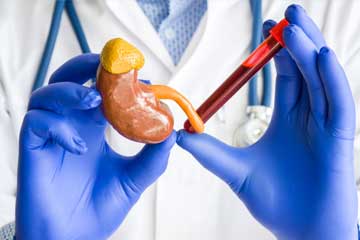Chronic kidney disease: Causes, Symptoms & Treatment in Ayurveda
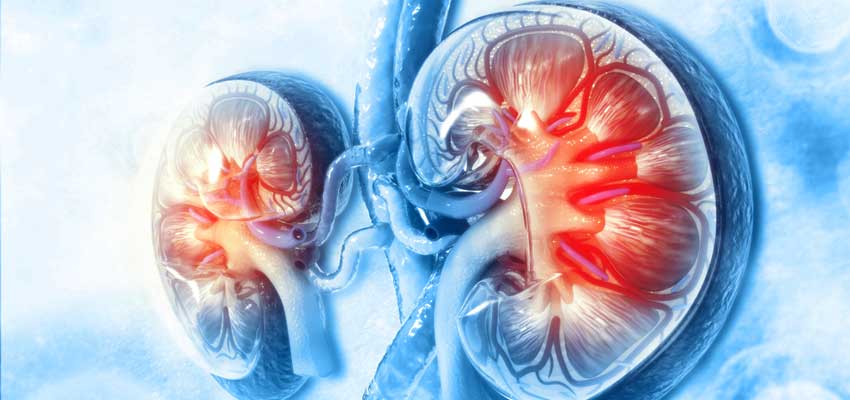
How can we identify chronic kidney disease?
Chronic kidney disease means the kidney function is getting weakened day by day. The word chronic kidney disease tells persisting damage to the kidneys that may become hazardous for your health. If the damage is very extreme, the kidneys will eventually stop working. This is the stage known to be an end-stage renal disease.
The kidneys are supposed to sift waste and harmful substances from the body in the form of urine. Of chance, any well-being health condition that hampers the kidney function occurs; the kidneys find it hard to function to their core capacity.
Imagine a pile of waste from various chemical reactions present in the blood. Would not you feel sick at that time? Yes, you would! CKD does not allow you to sustain a healthy life, and so a viable approach like Ayurveda is needed for your sustenance.
What are the signs and symptoms of chronic kidney disease?
It is hard enough for an individual to know their kidney function is framing low. Even when they are a little bit damaged, they can still carry out a blood filtration process, but not with that capacity. This is why people spend years remaining undiagnosed with chronic kidney disease and delay the treatment.
However, it is still essential to be conscious of the signs and screen yourself at least once a year. The earlier you diagnose chronic kidney disease, the more are the chances of getting the benefits of early treatment.
The signs that should not be missed or overlooked are:
- Changes in the urination: This also includes blood in the urine, more or less urine, pain when passing the pee, and urinating more at night.
- Fatigue body: You usually feel low in energy and tired than other healthy people
- Itchy body: The loss of the kidney’s ability to absorb fluid can cause itching
- Shortness of breath: The low production of RBCs may result in low supply of oxygen to the body resulting in panting
- Pain in the back: Pain in or around the areas of the kidneys that gets immense when you move
- High blood pressure: The fluid retention results in the increasing flow of blood against the bloodstream
- Poor appetite: You may lose your hunger, or even if you do eat, the food tastes like metal
- Swelling in hands or feet: The fluid retention in the cells and tissues result in edema and puffiness around the eyes
Which are the specific causes of chronic kidney disease?
Diabetes
Diabetes is the leading cause of chronic kidney disease worldwide. It accounts for 44% of the total cases of kidney disease.
Diabetes can influence the filters of the kidneys by affecting the blood circulation within the glomerulus. The condition may get worse when individuals may also have the following risk factors:
- Poor glucose control
- High blood pressure
- A family history of kidney disease
Changes in the kidney function begin after 4 or 5 years of diagnosis of diabetes. Within a couple of years of being diagnosed, around 40% of people develop late stages of chronic kidney disease.
What you can do to keep blood sugar under control
- Make sure to eat healthily and restrict the consumption of sugar in your meals
- Avoid soda or other carbonated drinks
- Take medications
High blood pressure, or what we also called hypertension, is the second leading cause of developing into the end-stage renal disease. About 29% of the patients of high blood pressure develop kidney failure because of the vicious cycle. When the kidney function is low because of high blood pressure, the fluid retention occurring therein may further force the blood to flow with extremity. Resultant, the kidneys get pressurized more and fail eventually.
What you can do to keep blood pressure under control
- Keep your blood pressure below 140/90
- Work on your stress level
- Eat healthily
- Don’t smoke
- Exercise
Glomerular Disease
Glomeruli are the small sieves of kidneys that remove the waste that comes along with the blood. Protein and even red blood cells may slip along with the urine when the kidneys lose their capacity to differentiate between the nutrients and the waste.
Glomerular disease is responsible for around 8% of the total instances of chronic kidney disease. The loss of protein, along with the urine and waste stocked in the blood, may drive swelling in the body.
What you can do to prevent CKD with glomerular disease
- Adopt home remedies to reduce swelling
- Medications to improve the immune system
Polycystic kidney disease
It is an innate condition that gets endow down through the family generations. Around 2% of the instances of PKD may develop end-stage renal disease.
Polycystic kidney disease causes several cysts to develop in the kidneys or at their boundaries. With thousands of cysts over, the kidney size may become too big, and the expanded kidney size may turn to be an obstruction in their normal functioning.
A person with PKD may have cysts since birth, but symptoms take years to show up. While symptoms can be treated with allopathic medications, for the complete revival of the kidneys, you still need to rely on chronic treatment in Ayurveda.
What you can do to prevent kidney disease with kidney cysts
Lifestyle changes can help slow down the progression of PKD into renal failure.
Make way to:
- Drink plain water
- Avoid caffeine, alcohol, and soda
- Control your blood pressure level
- Maintain a healthy weight
- Treat the manifestations of PKD at the earliest
Certain people who have PKD, but those who are at an increased risk of developing kidney failure are:
Those who have blood pressure
- People with protein in their urine
- Women who had a pregnancy and had blood pressure
- People with high blood pressure
Other Conditions
There are other conditions that can damage the filters of the kidneys, and those conditions include:
- Being obese
- A family history of kidney disease
- Excess consumption of alcohol
- Smoking
- Taking more of analgesics
- Being over 50
- Cardiovascular disease
Which are the tests to identify of Diagnoses kidney situation?
Learn the tests to diagnose kidney health
- Estimated Glomerular Rate: To know how well your kidneys are cleaning the blood.
- Urine tests: To evaluate the signs of the protein in the urine
- Blood Pressure: To check if your blood pressure is healthy or not
- Serum Creatinine: The test tells whether there is creatinine in the blood
- Blood Urea Nitrogen: It checks for the waste product in the blood
If you find similar signs in the body, talk to your doctor and get it diagnosed!

